
If you are into extreme sports, Pakistan should be on your bucket list as the country provides plenty of unexplored wildernesses. No matter you are a mountaineer or rock-climber, Pakistan can fulfill your dream with many unattempted peaks in the Karakoram. Located in South Asia, the country is blessed with historical and cultural riches as well as fascinating nature, including some of the world's highest peaks, picturesque valleys, and abundant green meadows.

Pakistan provides plenty of unexplored wildernesses. /VCG Photo
With diverse landscapes and climates, a wide variety of plants flourish in Pakistan. Coniferous forests are spotted in most of the northern and northwestern highlands. Palms such as date and coconut thrive in southern Baluchistan and Punjab provinces as well as all of Sindh. In this article, we introduce some popular plants in the country.
Jasmine
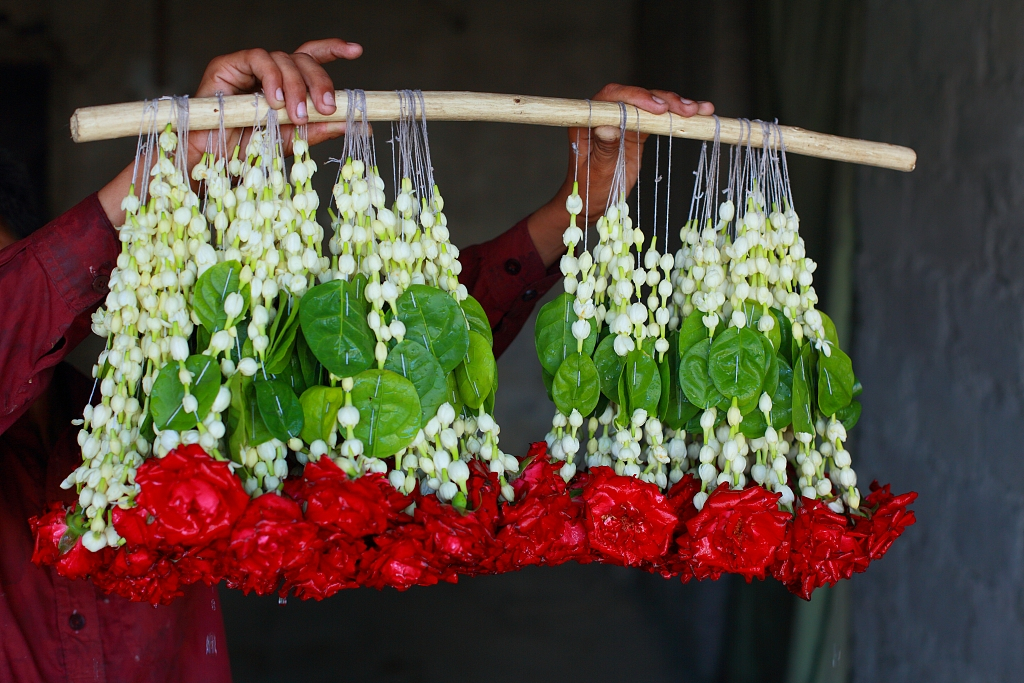
A flower seller at a market showing jasmines and red roses to attract the customers. /VCG Photo
In Pakistan, Jasmine is a very common flower that can be found in many gardens. The white fragrant flower represents amiability and modesty. It is recognized as the national flower of the country. People love its beautiful look and intoxicating scent. The flower is believed to have originated in the foothills of the Himalayas and then spread to other parts of the world.
The decorative flower releases its fragrance at night, and flower buds are more sweet-smelling than flowers. Oil extracted from the jasmine flower is thought to have relaxing properties, so it is widely used in perfumery.
In Pakistan, jasmines are used on different occasions. Brides and grooms wear garlands made of jasmines and roses on their weddings. Garlands of jasmine are also presented to Muslims who go on a pilgrimage to the holy city of Mecca. Apart from this, jasmine is also used at funerals.
Himalayan Cedar
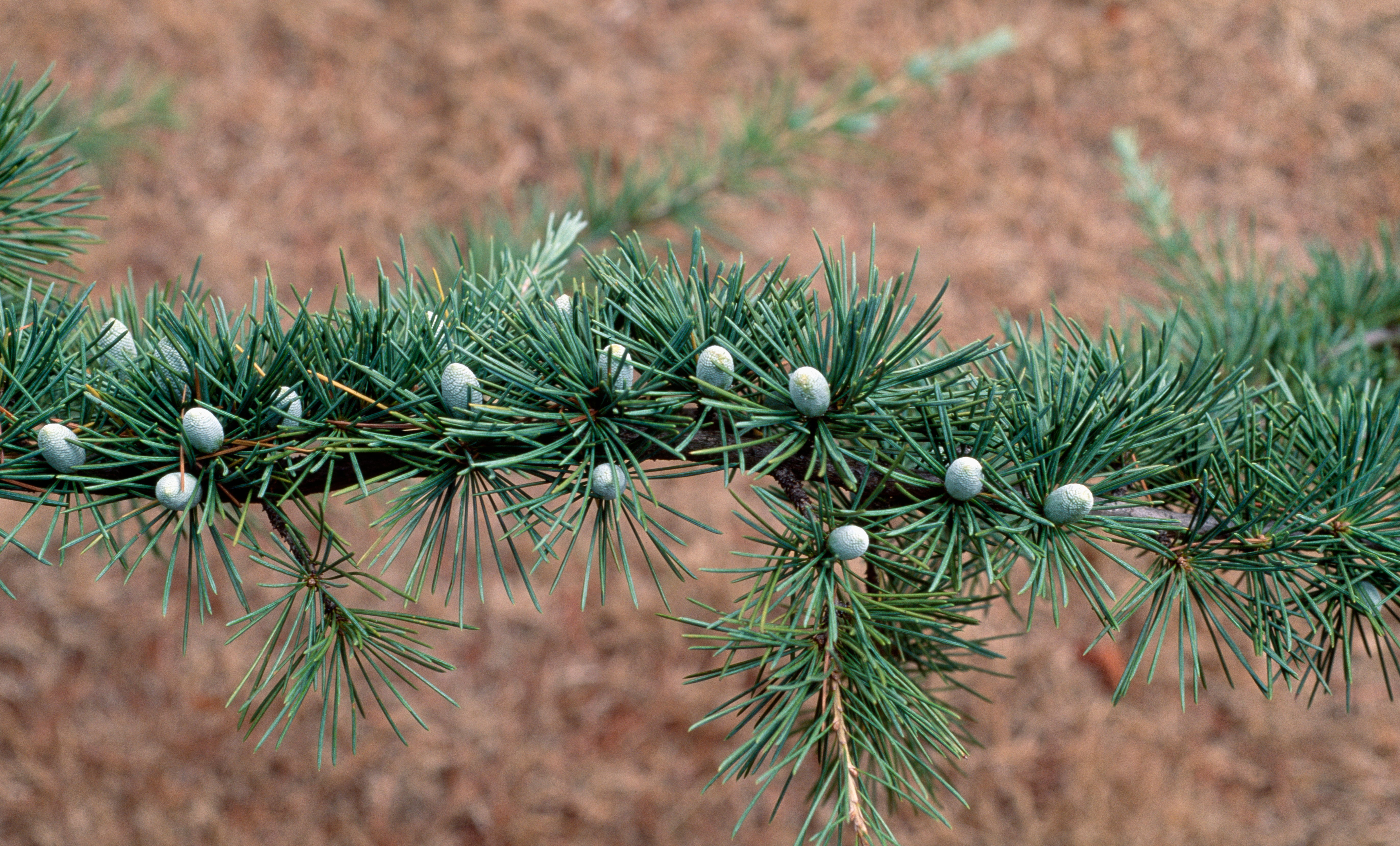
Leaves and fruits of Himalayan cedar. /VCG Photo
Himalayan cedar, a species of cedar native to northern Pakistan, is the national tree of the country. It is a large evergreen coniferous tree that can grow as high as 50 meters. Hindus worship it as a divine tree. Forests of Himalayan cedar are considered sacred places for ancient Indian sages.
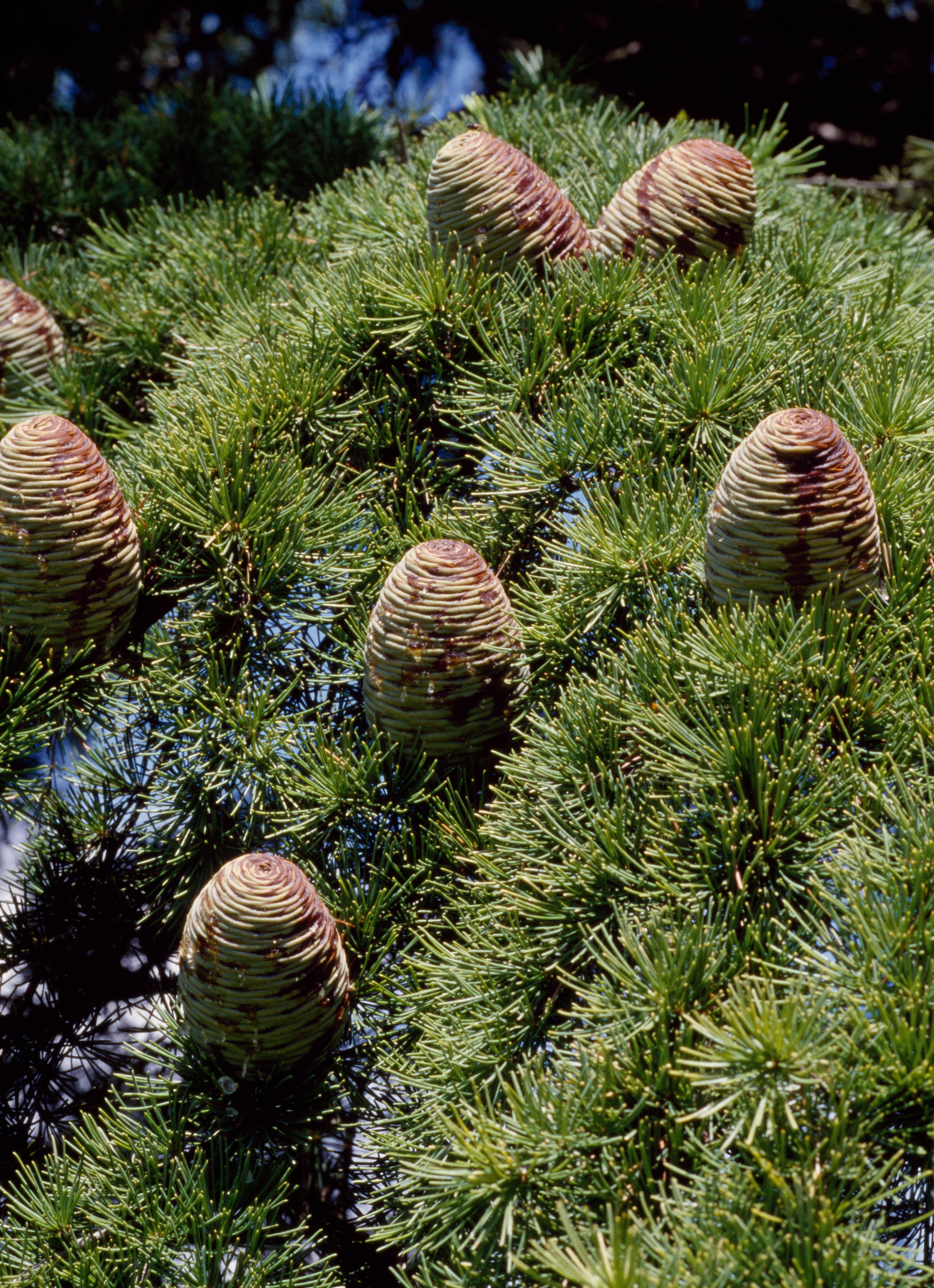
Leaves and cones of Himalayan cedar. /VCG Photo
Himalayan cedar is often planted in large gardens for its ornamental value. People also use the tree as a durable building material for the construction of temples, bridges, etc.
Cotton plant
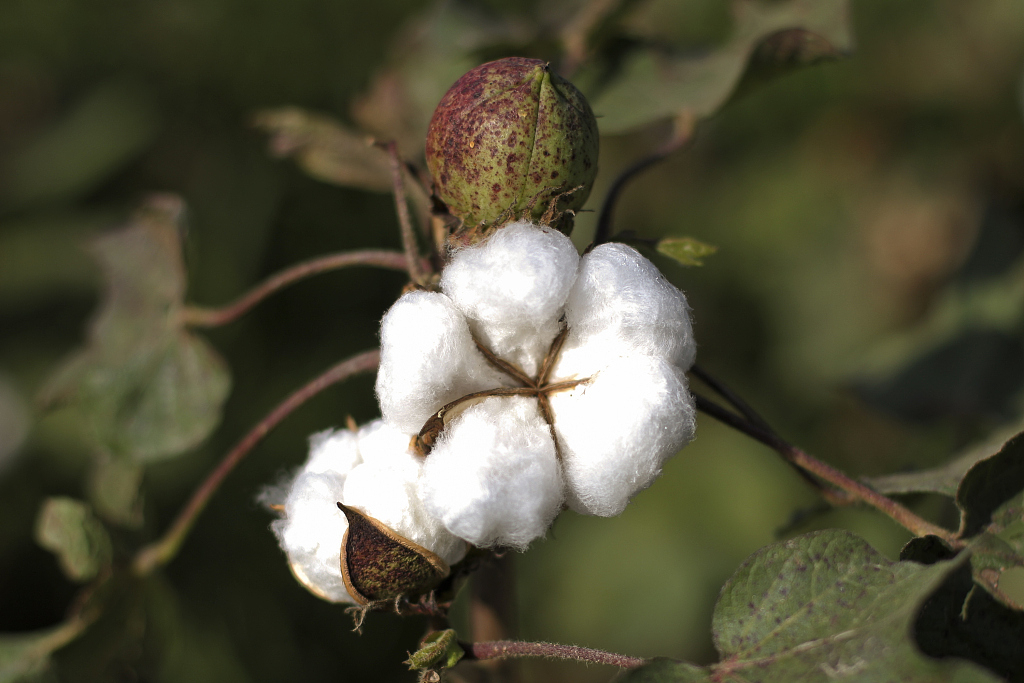
Cotton, known as "white gold", is an important cash crop in Pakistan. /VCG Photo
Cotton, known as "white gold", is an important cash crop in Pakistan. The country is one of the largest cotton producers in the world, and Punjab province accounts for the majority of the nation's cotton production.
Cotton plant is mainly cultivated for its soft and fluffy fiber, secondly for its seed oil, which contributes to the oil industry. The plant is a shrub native to Asia and Africa, now cultivated worldwide.
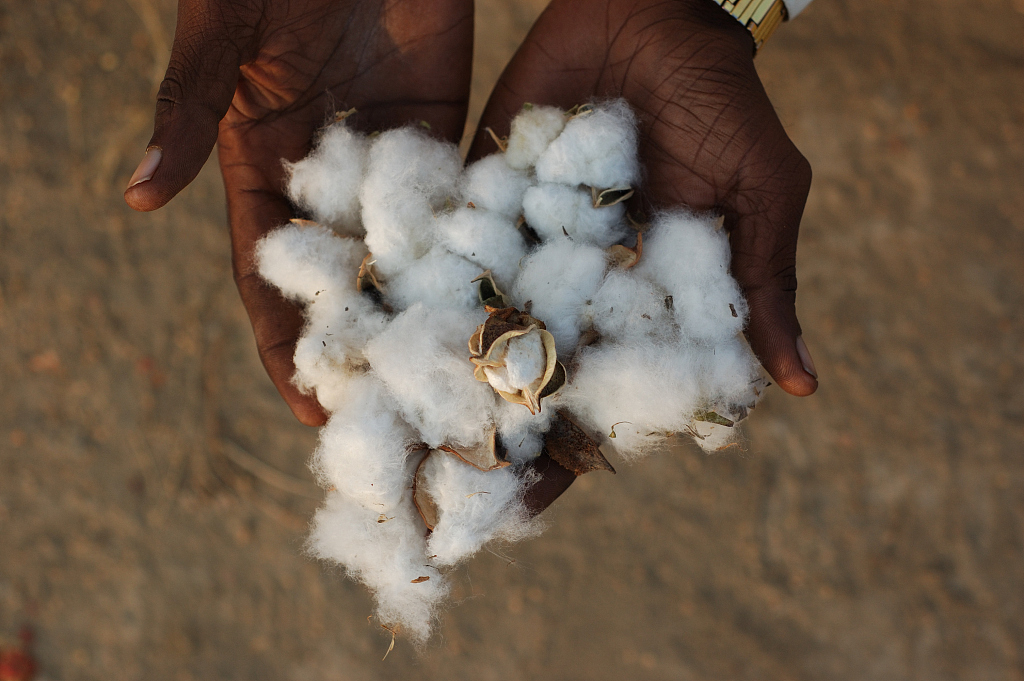
Cotton is integral to Pakistan's economy. /VCG Photo
Pakistan is one of the first regions to cultivate cotton, the earliest known historical traces of cotton were found at Mehrgarh, a Neolithic site which lies on the Kacchi Plain of Balochistan province. Hundreds of ginning factories and textile mills heavily depend on the crop, which is integral to Pakistan's economy.
About 'Plants & Nations'
"Plants & Nations" is a series of articles and pictures about common plants in the world. It serves as a guide to beautiful plants from different countries.
(Top image via VCG)
(If you want to contribute and have specific expertise, please contact us at nature@cgtn.com.)

Copyright © 2018 CGTN. Beijing ICP prepared NO.16065310-3
Copyright © 2018 CGTN. Beijing ICP prepared NO.16065310-3